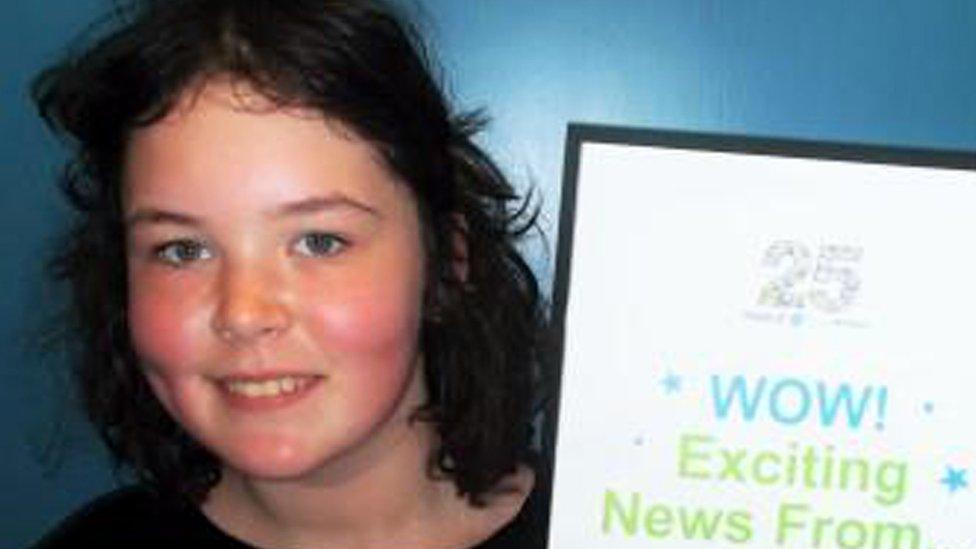Council leader trains to be island's gravedigger
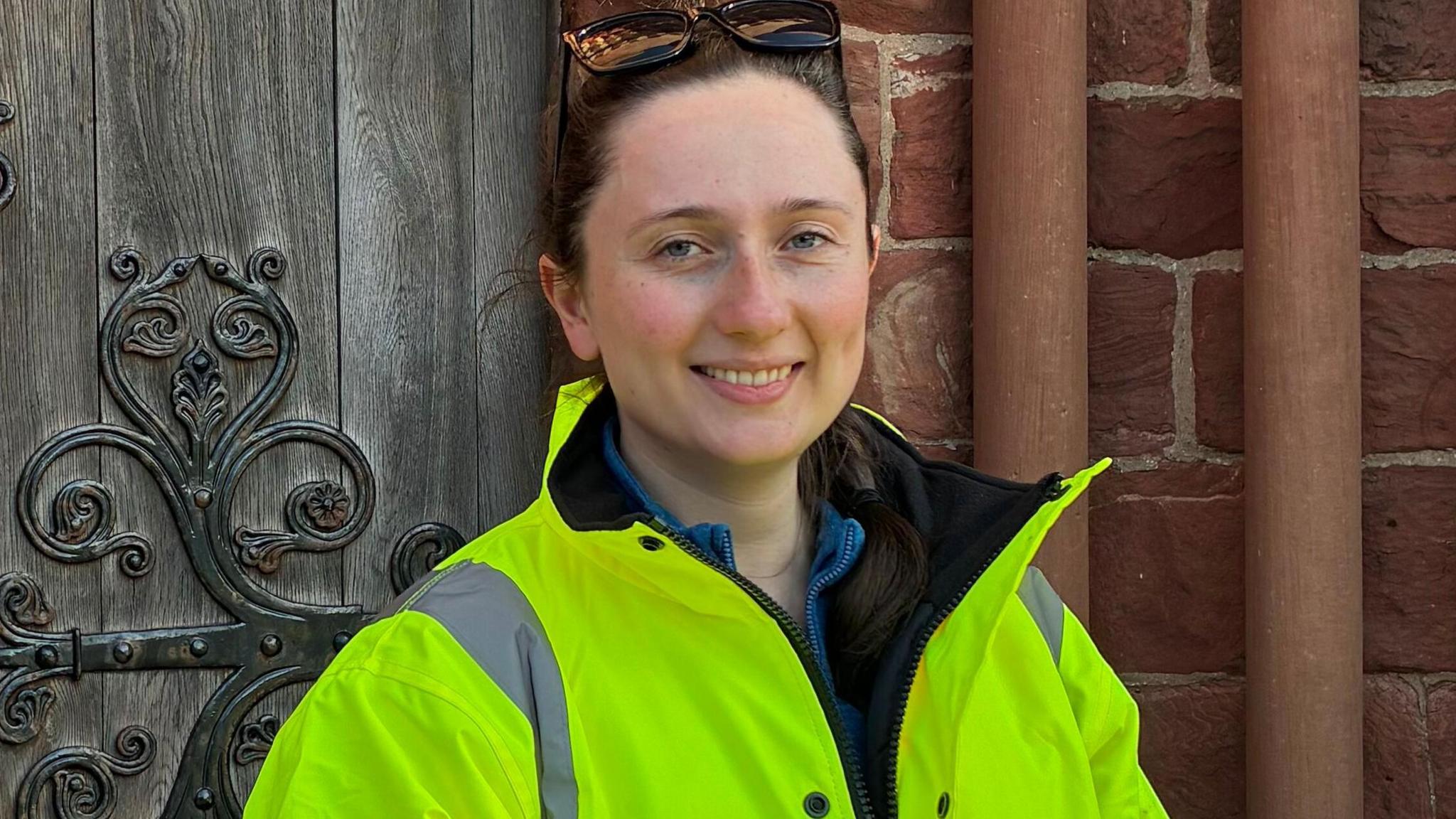
Council leader Heather Woodbridge after her second day of gravedigger training
- Published
Orkney Islands Council leader Heather Woodbridge has taken on the role of resident gravedigger on the remote island where she grew up.
The 31-year-old has just completed training for the post on North Ronaldsay, which has a population of 70.
Heather, who became Scotland's youngest council leader last year, said there were not enough fit young people available to perform some of the island's vital roles.
The Independent councillor said the previous gravedigger left two years ago and she wanted to do something to help her home community.
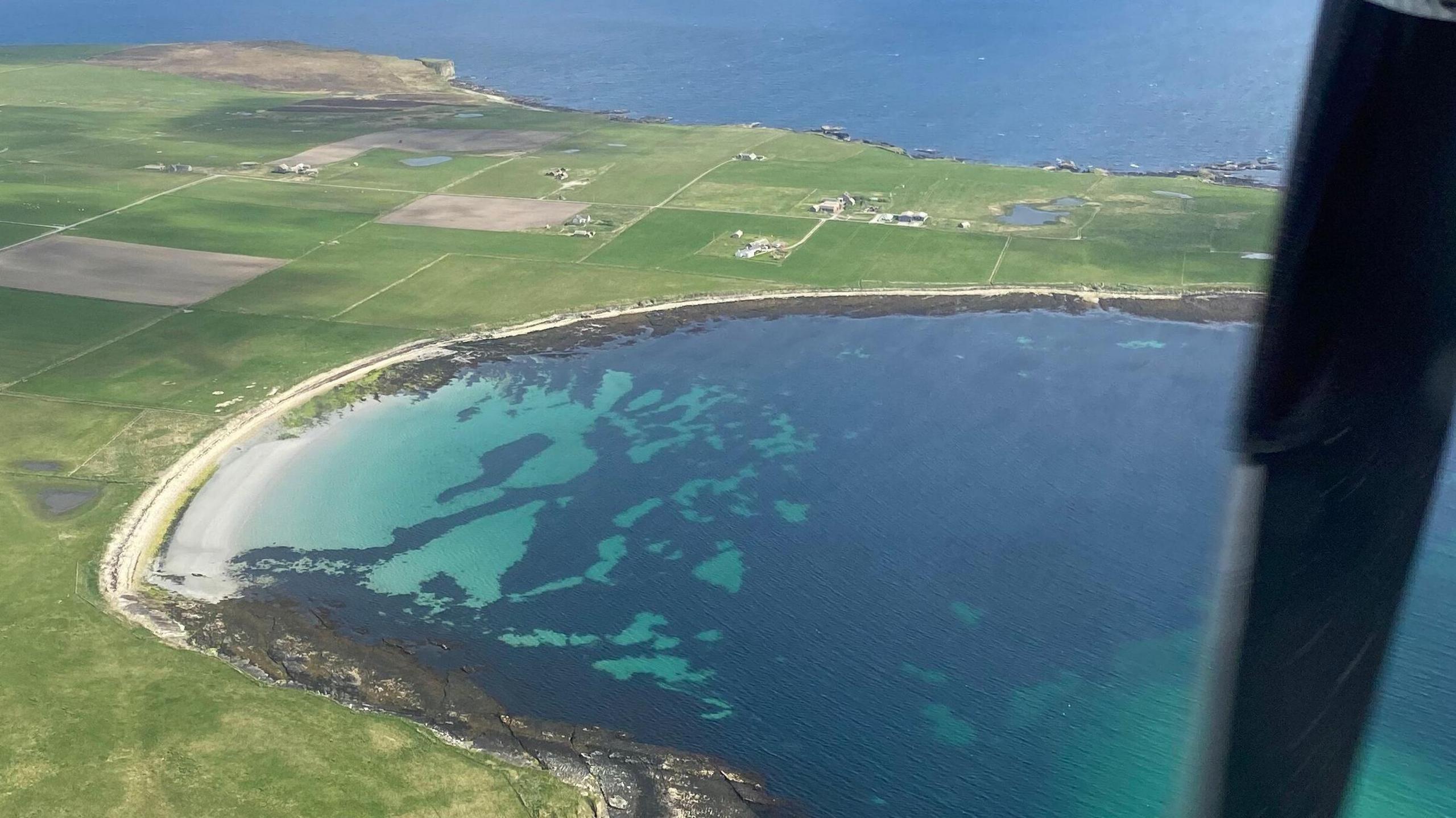
The flight from Kirkwall to North Ronaldsay goes three times a day, and has a capacity of seven people
North Ronaldsay is the most northerly of Orkney's islands and is only accessible from Kirkwall on the main island via a 20-minute plane journey or a ferry, which takes two hours and 40 minutes.
The island is famous for its seaweed-eating sheep, which are mostly confined to the shore by a 13-mile-long drystone wall that encircles the island.
Like most islands in Orkney, it is famed for being a community of multi-taskers, with some people working several jobs to sustain vital services like the airport, the ferry and the postal service.
Heather said: "There are wonderful people in Orkney who are willing to travel out to do jobs but, with the best will in the world sometimes it's not possible.
"It is important for islands to be resilient and to be able to fill those essential functions."
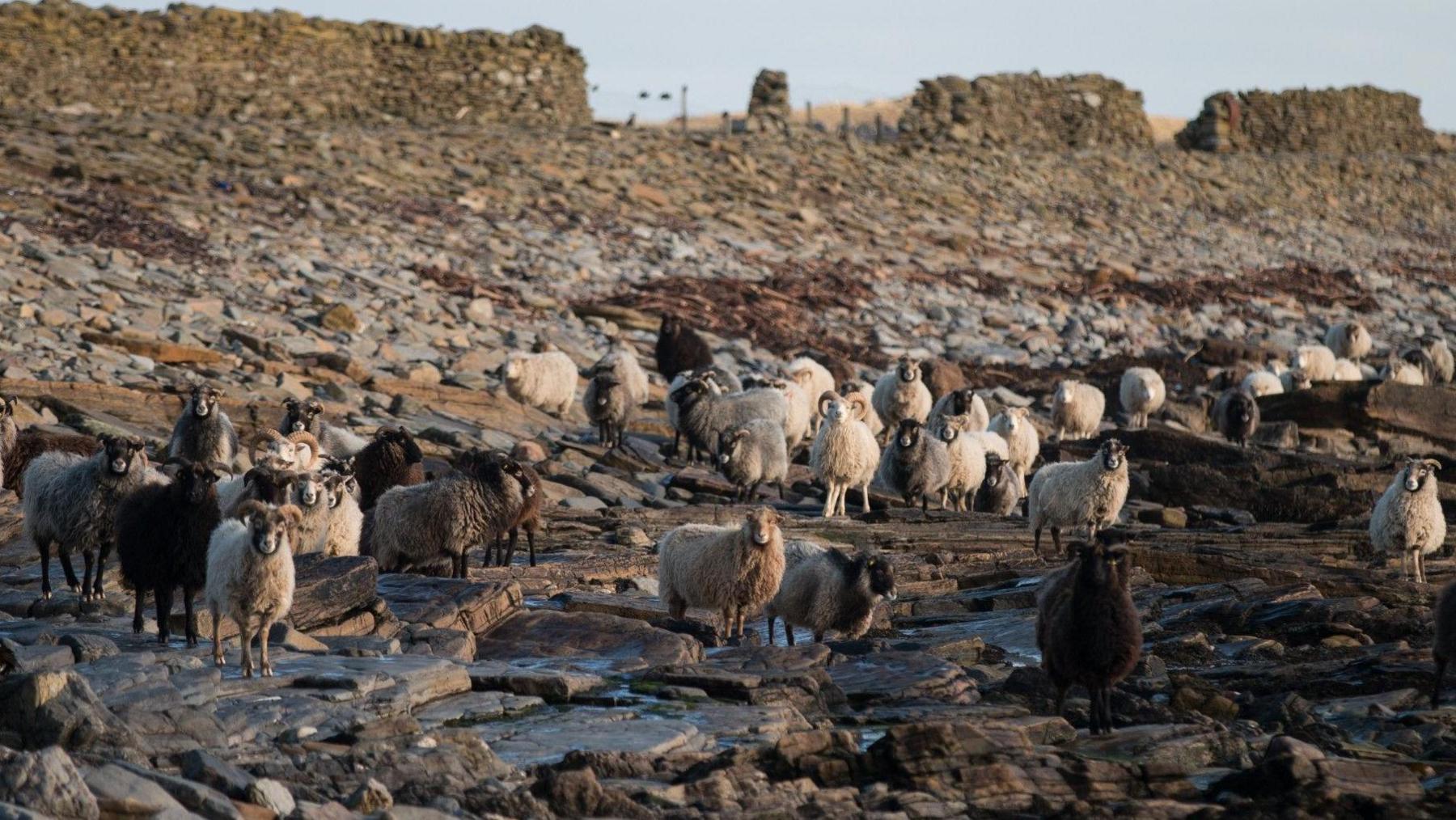
North Ronaldsay has a population of around 70 people, and is famed for its seaweed-eating sheep, which outnumber the humans
The council leader was raised on a croft keeping sheep, and educated at the tiny North Ronaldsay Primary before attending Kirkwall Grammar School.
After studying for a degree in Ecology at the University of Stirling, Heather returned to Orkney, and was elected to serve as a councillor in 2020, replacing her father who had died earlier that year.
Heather's mother still lives on North Ronaldsay, where she continues to run the croft with the help of relatives.
She is also the professional ornithologist at the island's bird observatory.
Having recently married the headteacher in Papa Westray, another island in Orkney with a population of about 90 people, Heather splits her time between the islands.
"My legal address is Papa Westray, but North Ronaldsay will always be very important to me," she says.
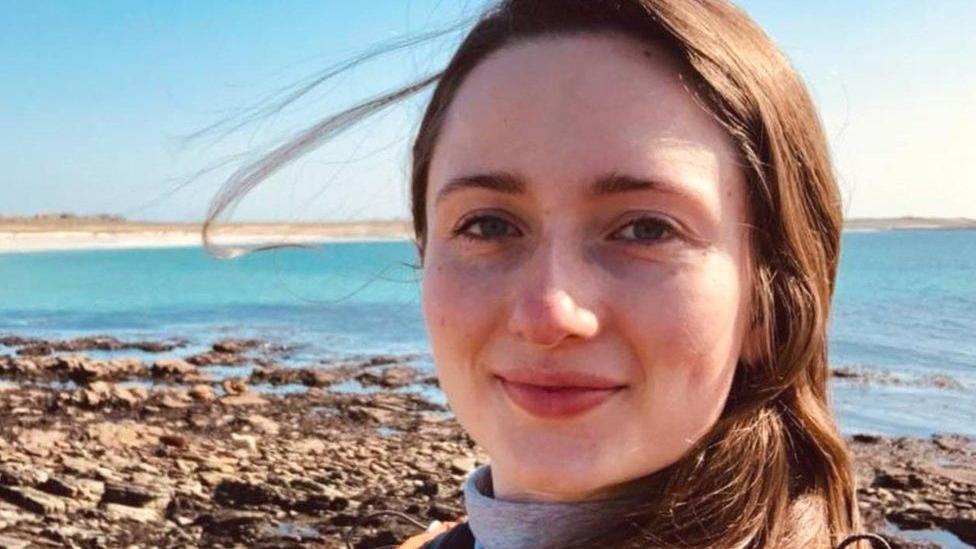
Heather Woodbridge was the first ever woman appointed to lead Orkney Islands Council
While about three-quarters of Scotland's population are cremated when they die, most people in Orkney are buried.
With no local crematorium, bodies are sent to cities such as Inverness if required.
Burials are infrequent on North Ronaldsay due to the size of its population.
And the island has not had a resident gravedigger for more than two years.
Heather said: "His kids grew up, finished school and it was time to move.
"He was a huge asset to the island so it was very sad when he because he had a number of jobs that he did in North Ronaldsay."
Since the previous gravedigger left, people have travelled to North Ronaldsay from the Orkney mainland to do the job, however challenges arise if they decide to bring their own digger.
In winter, this poses a particular issue as the ferry service is reduced to one boat a week between Kirkwall and North Ronaldsay.
This means when gravedigging machinery is sent up, it has to stay on the island until the following week.
Heather, who insists her full-time role will still be as council leader, says she can occasionally work as a private contractor digging graves using the resources already available to her on the island.
Gravedigging qualification
She completed two days of training before getting the qualification - including a written assessment and a practice dig.
While gravedigging is traditionally done by hand, nowadays the technique involves using a digger, which excavates rectangular shapes from the earth.
Heather said the key thing is knowing how to do the shuttering to make sure the walls don't collapse.
Although it is "heavy work", the council leader found it manageable as she is used to helping her mother out on the family croft and regularly goes on walks and runs.
"You have to be physically fit to move that all around," she added.
Heather said that while the burden of work was done by a mini-digger it still took a number of hours to complete the work safely.
The politician said she could not have foreseen taking on this extra responsibility when she was elected council leader.
But she hoped her decision would inspire others, and encourages people to consider those who do "essential jobs to keep society running".
Heather also said she was not worried about potential mockery from opponents.
"I think it is a true honour to be able to prepare someone's final resting place," she says.
"I hope that people treat this with the respect that I do."
Related topics
- Published20 February 2024
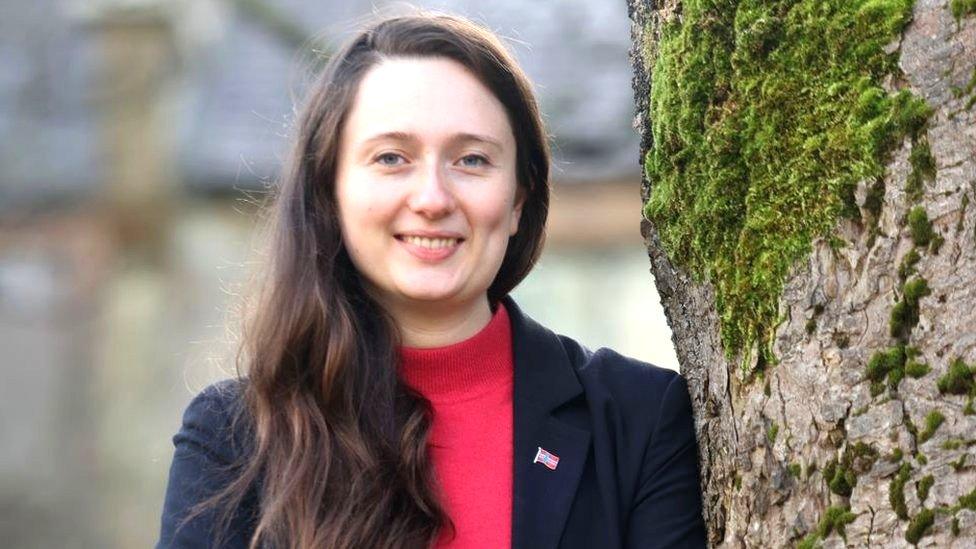
- Published3 January 2020
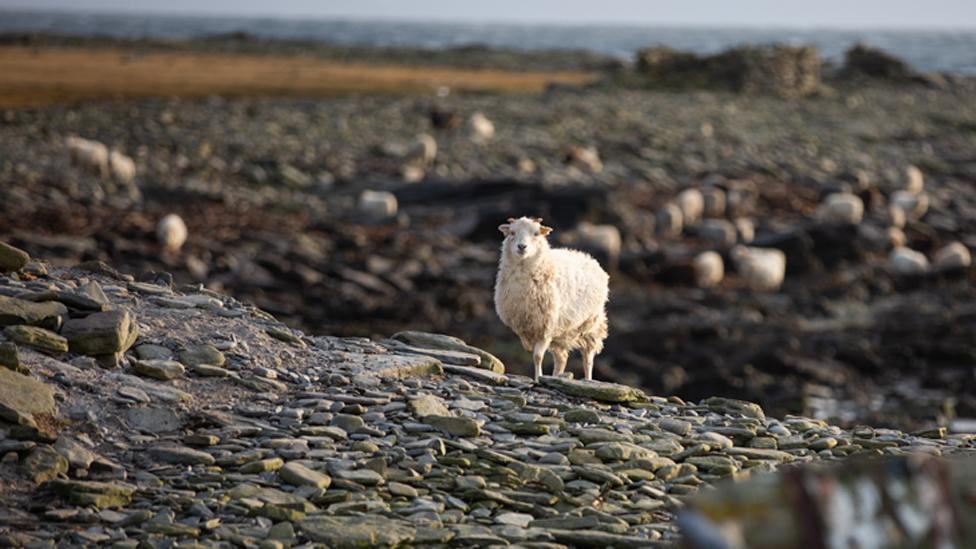
- Published28 July 2017
